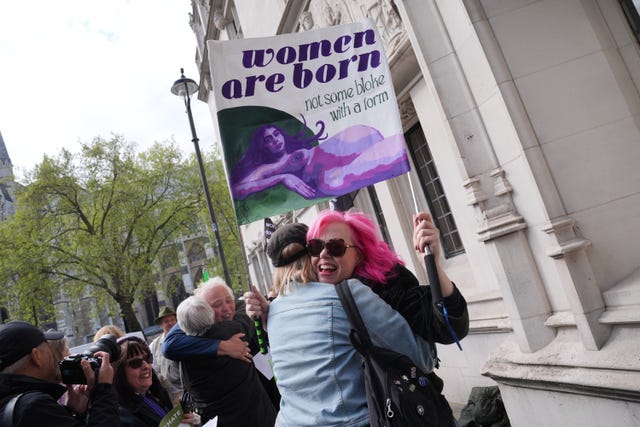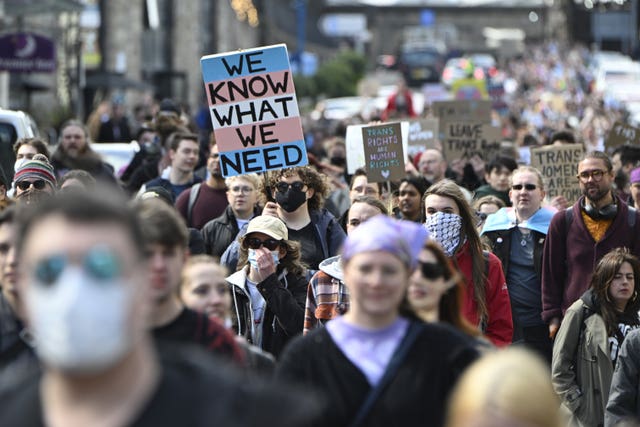Equalities watchdog issues interim guidance on single-sex spaces
Trans women ‘should not be permitted to use the women’s facilities’ in workplaces and some services, the Equality and Human Rights Commission said.

The equalities watchdog has issued interim guidance in the wake of the Supreme Court ruling that the term woman is defined by biological sex.
Trans women “should not be permitted to use the women’s facilities” in workplaces or public-facing services like shops and hospitals, the Equality and Human Rights Commission (EHRC) said.
The same applies to trans men, who are biologically female, using men’s toilets.

But the watchdog also insisted that trans people “should not be put in a position where there are no facilities for them to use”.
Over the Easter period, the Supreme Court declared that the words “woman” and “sex” in the Equality Act refer to a biological woman and biological sex.
The ruling has been interpreted to mean that trans women, who are biologically male but identify as women, can be excluded from women-only spaces like toilets and changing rooms.
The guidance has been released because “many people have questions about the judgment and what it means for them”, the EHRC said.
Schools must provide single-sex changing facilities to boys and girls over the age of eight, according to the new guidance.

“Suitable alternative provisions may be required” for trans pupils, the watchdog said, as trans girls “should not be permitted to use the girls’ toilet or changing facilities, and pupils who identify as trans boys (biological girls) should not be permitted to use the boys’ toilet or changing facilities”.
The watchdog also said that sports clubs and other associations of 25 or more people are allowed to be exclusively for biological men or women.
Such clubs “can be limited to people who each have two protected characteristics”, the guidance said.
This would mean, for example, that a lesbian women’s sports club should not admit trans women.
The watchdog is working on a more detailed code of practice following the Supreme Court ruling, which it said it aims to provide to the Government for ministerial approval by June.





